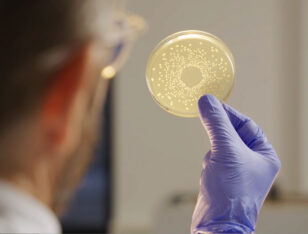Probiotic myths
In recent years there has been a significant upsurge in research on the characterisation and verification of the potential health benefits associated with the use of probiotics. In addition, the market for probiotics continues to expand exponentially as consumers (mostly healthy individuals) rely on health claims made by manufacturers to make their choices.
There is scientific evidence that specific strains of probiotic microorganisms confer health benefits on the host and are safe for human use. However, this evidence cannot be extrapolated to other strains, as these effects are strain-specific.
“All probiotic products have the same effect”
Fact:
There is a big difference between probiotic products. The effect of probiotics must be shown in clinical trials, i.e. studies on humans. Different strains of probiotics have different properties, resulting in different effects. Labels on many probiotic products state they contain Lactobacillus acidophilus without specifying whether it is Lactobacillus acidophilus LA-5 or Lactobacillus acidophilus NCFM – strains that are as different as an apple is from an orange.

“Lactic acid bacteria are probiotics”
Fact:
XXXX

“Eating enough healthy foods will give me enough good bacteria for optimal gut health”
Fact:
Consuming a variety of healthy food is important for gut health. However, there are different and distinct advantages to taking probiotic supplements. A bacterium is considered a probiotic when its health benefits are proven in clinical studies.

“Multi-strain products are more effective than single-strain probiotics”
Fact:
A probiotic supplement’s effectiveness is not determined by the number of strains or bacteria it contains. It depends on which strains are present in the product. Some strains are more potent and a smaller number of bacteria cells are required for effect. Most multi-strain products are not clinically tested to determine which strains work in conjunction with one another. A probiotic product’s health benefits need to be proven in human trials.

“Prebiotics and probiotics are the same thing”
Fact:
As defined by the World Health Organization (WHO), probiotics are live microorganisms that, when administered in adequate amounts, confer a health benefit on the host. In contrast, prebiotics are nondigestible ingredients that stimulate the growth of bacteria in the digestive system.

“Regardless of which probiotic I take, it has the same effect”
There are big differences between probiotic products. The health benefits of a probiotic need to be proven in clinical trials, i.e. studies on humans. The effects of different probiotic strains on the human body will vary because of their different properties.

“Probiotic capsules have a better effect than probiotic tablets or drops”
It doesn’t matter whether you take probiotic supplements as capsules, tablets, or drops. Human-origin probiotic bacteria such as L. reuteri Protectis generally survive better in the human gastrointestinal tract than bacteria that are not of human origin.



